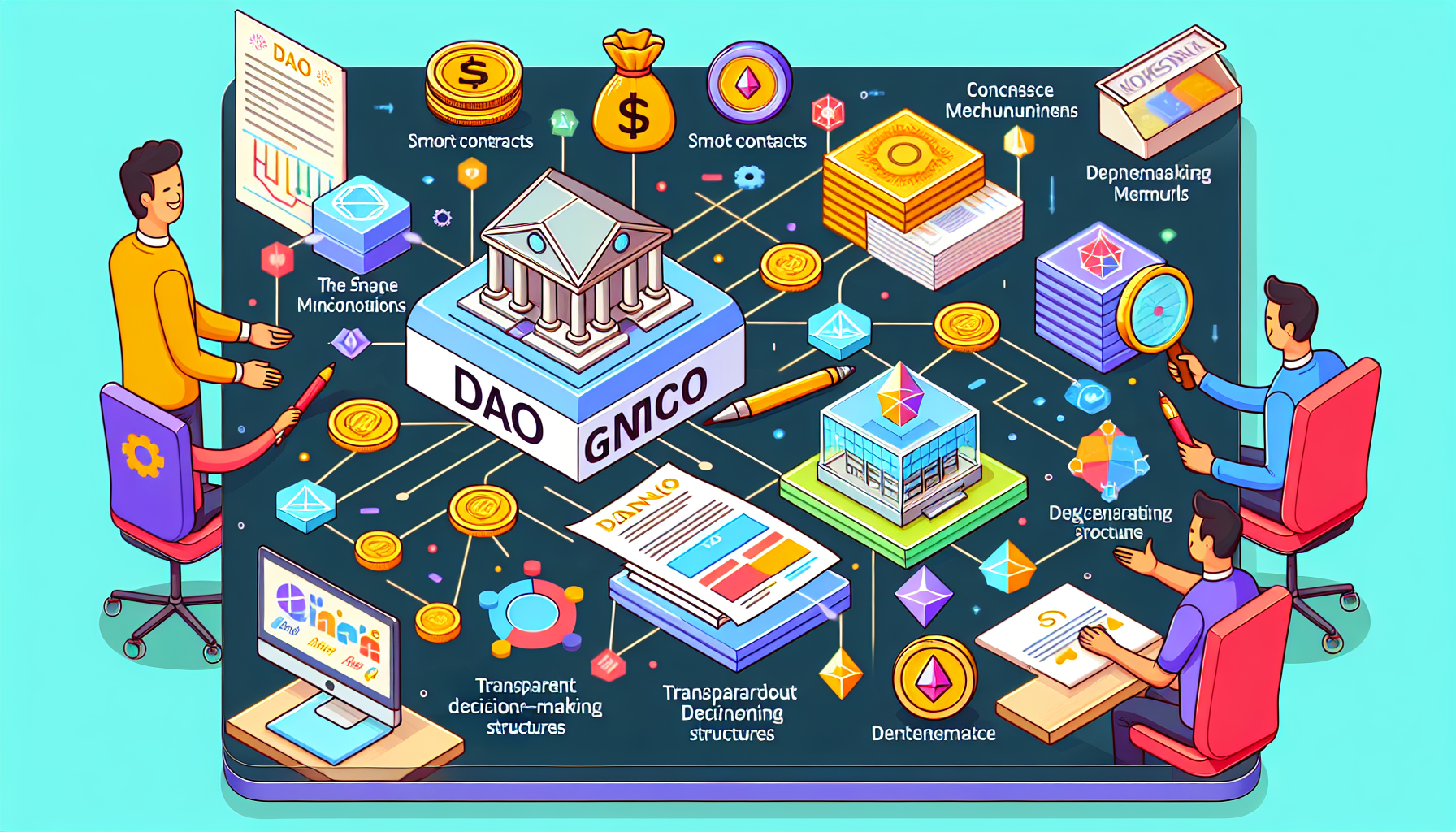Introduction: Why DAO Governance Matters for Startups
Have you ever wondered how blockchain startups can effectively manage their projects without traditional hierarchical structures? With over **60% of startups** considering decentralized governance, understanding DAO governance models is crucial!
What is DAO Governance?
Decentralized Autonomous Organizations (DAOs) use smart contracts on the blockchain to facilitate decision-making. This means that instead of a board or a single CEO making decisions, everyone involved has a say. For instance, if your startup is based in Singapore, implementing DAO governance can align with the local regulations on decentralized finance.
Key Benefits of DAO for Startups
- Increased Transparency: All transactions and decisions are recorded on the blockchain, making it easier for stakeholders to hold the organization accountable.
- Community Engagement: By allowing token holders to vote on key decisions, a DAO can foster a sense of ownership among users.
- Shared Incentives: DAOs often distribute rewards based on contributions, aligning interests and encouraging collaboration.
Types of DAO Governance Models
There are various governance models that startups can consider when establishing their DAOs:

1. Token-Based Voting
This is the most common model, where the number of tokens held determines voting power. Think of it like a shareholder meeting where the more shares you own, the more influence you have. However, one risk to note is the potential for wealth concentration.
2. Quadratic Voting
Quadratic voting allows individuals to express the strength of their preferences, not just a simple yes or no. If a decision affects you significantly, you may spend more tokens to cast multiple votes. This model addresses wealth concentration but might complicate the voting process.
3. Liquid Democracy
In this model, members can delegate their voting rights to others. For example, if you trust a certain expert in your field, you can delegate your vote to them for specific proposals. This creates a dynamic flow of power and empowers subject matter experts.
4. Reputation-Based Models
Instead of tokens, this model uses a reputation score to determine voting power. Members with higher reputation scores gain more influence, incentivizing quality contributions over mere financial investment. Keep in mind, however, that maintaining a fair reputation system can be challenging.
Challenges of DAO Governance
Although DAO governance offers unique advantages, startups must be aware of potential challenges:
- Regulatory Compliance: Navigating the legal landscape can be daunting, especially with varied regulations across countries like Singapore and the USA.
- Voter Apathy: Getting members to vote consistently can be difficult, undermining the intent of democratic governance.
- Security Risks: As seen in several notable DAO hacks, ensuring that your DAO’s smart contracts are secure is paramount.
Conclusion: The Future of Startups with DAO Governance
As we move towards a more decentralized future, understanding DAO governance models is essential for startups looking to innovate. By leveraging these models, companies can create a more engaged community and more transparent decision-making process. Ready to take the plunge? Start by reviewing your organization’s core mission and how DAO governance could enhance it!
For further insights and resources related to digital currencies, visit our related articles on secure cryptocurrency storage and blockchain technology principles.
Note: This content does not constitute investment advice. Please consult your local regulatory body before making any decisions.
Author: Dr. Alex Thompson, a recognized authority in blockchain technology with over 15 published papers and led audits for prominent projects in the crypto space.